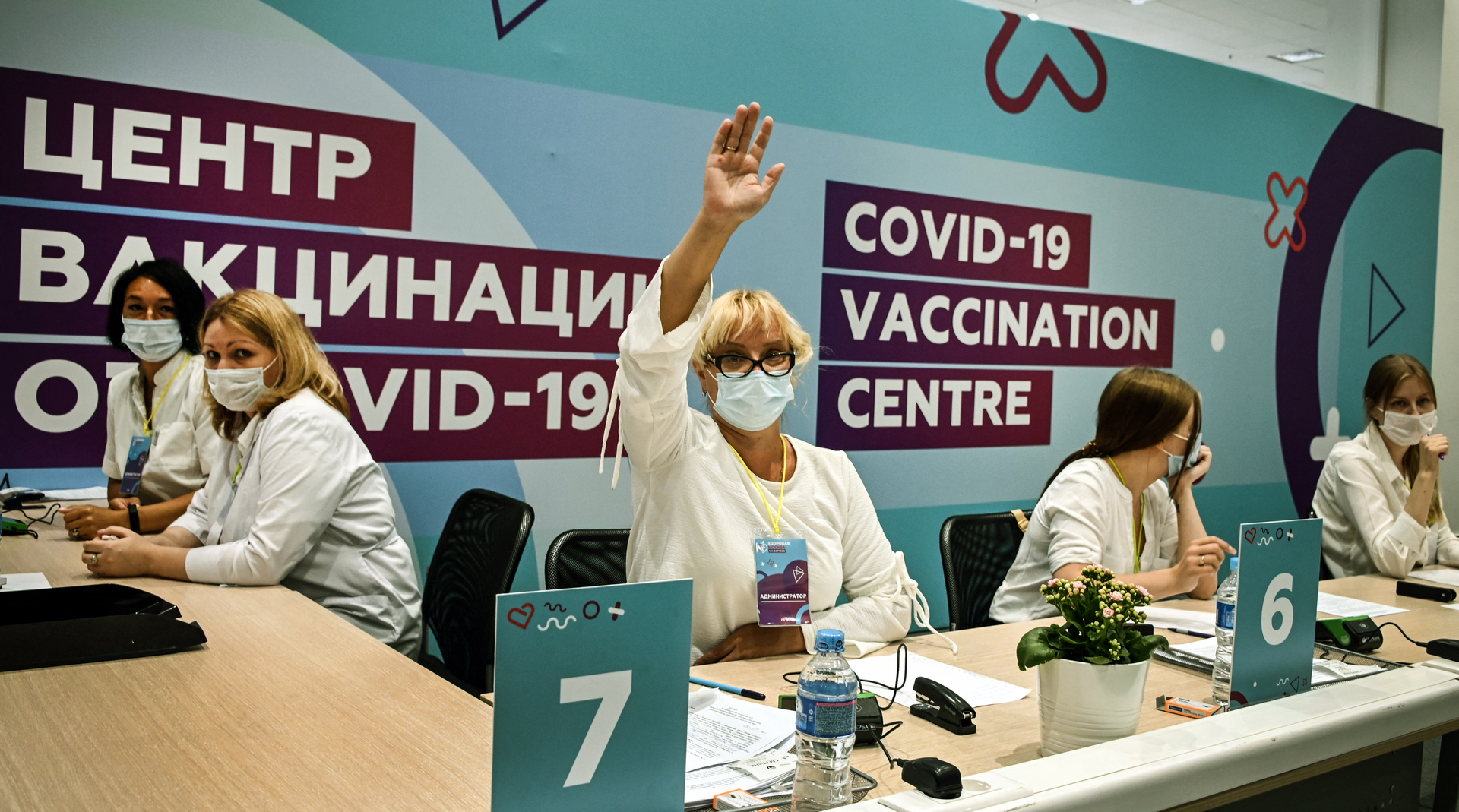In Moscow, short-term restrictive measures are possible amid the spread of coronavirus infection, but the city will not stop due to the pandemic.
Mayor of the capital Sergei Sobyanin told about this in an interview on the TVC channel.
“We will not stop developing the city, pandemic or not, the city will still live a full life and develop.
Yes, some restrictions are possible, yes, some short-term restrictive measures are possible, but in general the city has adapted, and we understand that this will not stop us, ”Sobyanin said.
Speaking about the current situation with the spread of coronavirus infection, Sobyanin noted that the current autumn wave is quite difficult, with high dynamics.
“Over the past weeks, we have seen an increase of 20-30%, and, unfortunately, the dynamics of growth is not decreasing,” he said.
Sobyanin stressed the need to "take care of yourself, comply with sanitary standards and be actively vaccinated."
He noticed that within six months the effect of the vaccine weakens, however, people who have been vaccinated, even when they get to the hospital, still bear the disease more easily, and the mortality among the vaccinated is "several times less" than among those who have not been vaccinated.
“You need to take care of yourself first.
Do not listen to anyone, we have a wonderful vaccine, first-class, world-class, which has passed all the necessary tests, "said the mayor.
According to him, at the moment, the most difficult situation is with the vaccination of the elderly.
“Only a third of the elderly have taken root in our country.
What this means is that they are still at a huge risk group, because 80% of those dying from COVID-19 are people over 60 years old, ”the mayor explained.
AFP
© ALEXANDER NEMENOV
He drew attention to the fact that the Moscow authorities are holding consultations among the population, and have also formed a special gift for the elderly - a set of medicines.
If desired, elderly people can receive a payment of 10 thousand rubles instead of a gift.
He also noted that from next week in the capital will begin to compete "10 apartments for five weeks among those who were vaccinated."
“But the main incentive is your own health, your own life.
What other incentive is needed?
A pandemic is not for one day, we will live with it for a long time, unfortunately, ”Sobyanin said.
Speaking about compulsory vaccination for certain groups of citizens in the capital, Sobyanin recalled that Moscow was the first to resort to this measure in relation to, in particular, doctors, teachers, social workers, catering, transport and other areas where workers are in direct contact with citizens ...
“We have not canceled this decision.
True, at least 60% had to be vaccinated on it.
Today, at least 70% of them have already been vaccinated, and in some categories more than 80%, ”he said.
Against this background, there is no point in making additional decisions, Sobyanin said, specifying that these categories of citizens should continue to be vaccinated, as well as revaccinated.
“Because, unfortunately, the vaccine against the delta strain after six months begins to work less effectively, but nevertheless it saves from severe forms of the disease,” he concluded.
The situation with coronavirus in the regions of the Russian Federation
Russian regions continue to make decisions on toughening or easing restrictive measures introduced due to coronavirus based on the current epidemiological situation.
Thus, the authorities of Orenburg have extended distance education for schoolchildren in grades 5-10 until October 24, followed by leaving for the autumn holidays.
“Another week of separation of senior schoolchildren and restriction of contacts of all children from seven to 17 years old for the next week of holidays will interrupt the chains of the spread of the virus, help preserve the health of Orenburg residents and reduce the burden on the health care system,” the municipal headquarters said at a meeting.
A similar decision was made by the authorities of the Samara region - the region extended distance learning for schoolchildren from grades 6 to 11 until November 7.
The authorities of the Belgorod region have introduced QR codes for visiting public places.
This was reported on the official website of the regional government.
In particular, the activities of leisure, cultural and sports institutions are carried out in accordance with the recommendations of Rospotrebnadzor and social distance.
Among the prerequisites for the work of these institutions, it is noted that employees and visitors have QR codes about vaccination, a certificate of a coronavirus postponed in the last six months or a negative PCR test for a period of not more than 72 hours.
In addition, the region restricts the stay of children under the age of 14 in public catering and shopping centers unaccompanied by adults.
In addition, weddings, banquets, corporate parties and other events are prohibited with more than 50 people.
In the Sverdlovsk Region, the list of categories of citizens that are subject to mandatory vaccination against COVID-19 has been expanded - health workers, social protection and social services workers, employees of the MFC, transport infrastructure facilities, hostels, museums, exhibition halls must be vaccinated.
The authorities of the Yamal-Nenets Autonomous Okrug (Yamalo-Nenets Autonomous Okrug) have decided to postpone the autumn holidays for schoolchildren - they will begin on October 25.
Also in the Krasnoyarsk Territory, Rospotrebnadzor ordered to vaccinate 80% of citizens from a number of categories subject to mandatory vaccination against coronavirus.

